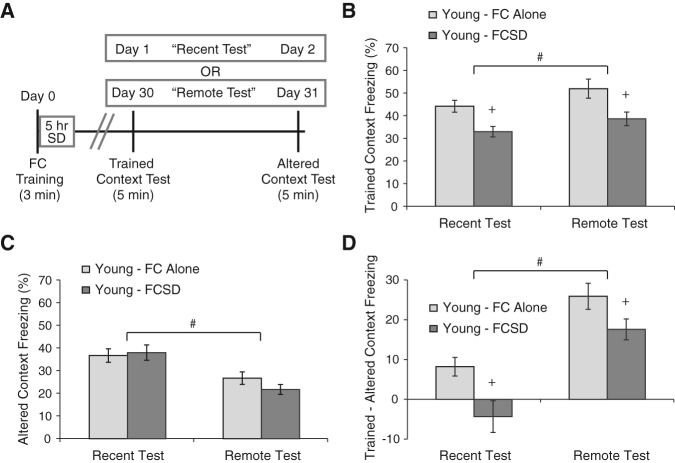Figure 1.
Sleep deprivation after training in young mice impairs memory tested 1 or 30 d after training. (A) A timeline of experimental procedures used for both young and old mice. C57BL/6 NIA mice (either 2-mo old (young) or 22- to 23-mo old (aged)) received single-trial contextual fear conditioning and were immediately either sleep-deprived for 5 h by gentle handling (FCSD) or left undisturbed in their home cages (FC Alone). Half of the mice from each group were then tested for retention, as assessed by percent time spent freezing, in the same environment (trained context) 1 d later, followed by testing in a different environment (altered context) the following day (Recent tests). The other half of the mice were tested in the trained context 30 d following training, again followed by testing in the altered context the next day (Remote tests). The specificity of memory was calculated by subtracting the amount of freezing in the altered context from the freezing in the trained context. (B) In young mice, SD significantly impaired memory for the trained context during the Recent and Remote tests. (C) SD did not have a significant effect on freezing in the altered context, which instead lessened over time in both the FC Alone and FCSD groups. (D) SD impaired the specificity of memory for the trained context during the Recent and Remote tests. Notably, young mice showed an improvement in the specificity of memory from the Recent to the Remote test. Data are graphed as the mean ± SEM. (#) A significant overall effect of testing time, and (+) a significant overall effect of SD (P ≤ 0.05 was considered significant). Number of animals: FC Alone Recent = 20, FCSD Recent = 20, FC Alone Remote = 21, FCSD Remote = 22.

